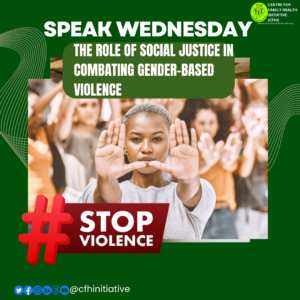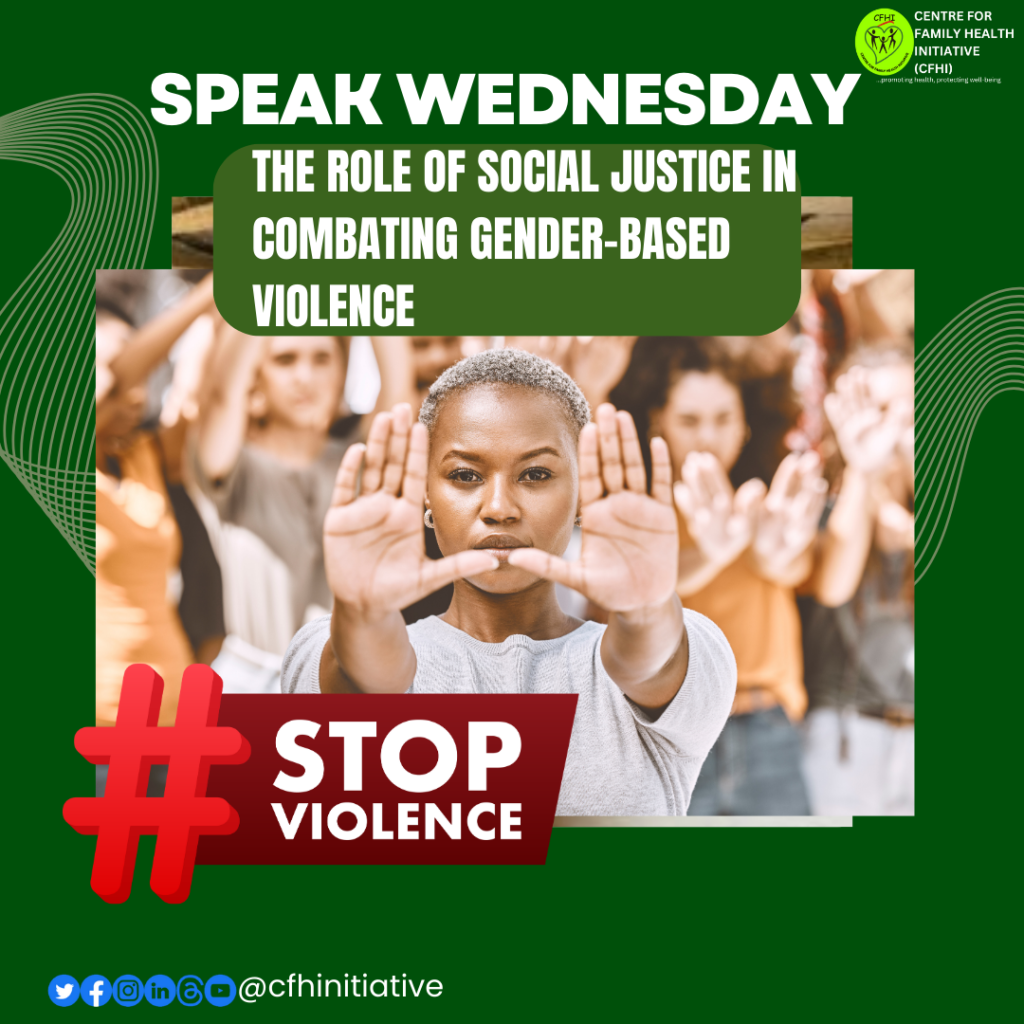In the quest to eliminate gender-based violence (GBV), the concept of social justice serves as a cornerstone, championing not just the equitable distribution of resources but the foundational belief that every individual is entitled to equal economic, political, and social rights and opportunities.
The United Nations defined social justice as the fair and compassionate distribution of economic growth, the view that everyone deserves equal economic, political, and social rights and opportunities. This political and philosophical theory focuses on fairness in relations between individuals in society.1
At its core, GBV thrives in environments where inequality prevails, making pursuing social justice an essential pathway to its eradication. Understanding the relationship between social justice and gender-based violence is crucial to developing effective strategies to combat GBV. The absence of social justice—manifested through the unequal distribution of resources, opportunities, and privileges—exacerbates socio-economic disparities, which in turn can increase instances of violence against women and other vulnerable groups. These disparities often lead to or exacerbate situations where individuals are more susceptible to violence.
United Nations Office on Drugs and Crimes (UNODC) highlights economic power as one of the six pillars of GBV, pointing out that economic and financial violence—stemming from the denial of resources or actions causing economic harm—is intrinsically linked to other forms of violence against women.
As identified by UNODC, economic power underscores the fundamental causes of economic and financial violence, such as the denial of resources. These acts of economic harm are closely interwoven with various manifestations of GBV. The denial of economic opportunities, control over financial resources, and access to education not only marginalizes women but also places them at an increased risk of experiencing violence. Thus, empowering women economically and ensuring access to resources is critical in combating GBV.
The UN’s proposals to advance social justice are multifaceted, aiming at creating a society where GBV is less likely to occur. These include improving inclusive and effective governance of work, ensuring employment opportunities and lifelong learning, reforming institutions for fairer labour market outcomes, and extending social protections across peoples’ lifetimes.
The role of social justice in combating gender-based violence is undeniable. By addressing the systemic inequalities that perpetuate GBV, society can move closer to eliminating this pervasive issue. Economic empowerment, inclusive governance, fair labour practices, and comprehensive social protections are not just ideals of a just society but are practical tools in the fight against GBV.
Speak Wednesday is an initiative of CFHI to address issues around gender-based violence and gender bias.
References:
1.
https://www.un.org/esa/socdev/documents/ifsd/SocialJustice.pdf


